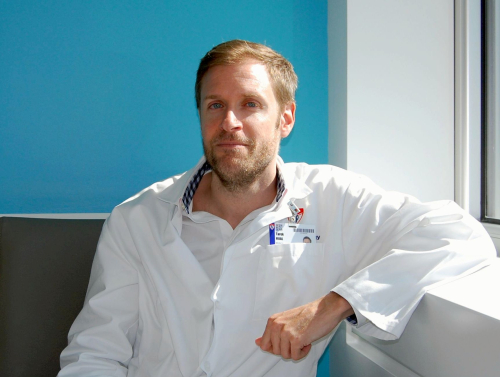An RCN Education Grant is giving an MD the training to streamline care where it counts

Thanks to an Investing in the Future grant from the RCN, Dr. Hijal is wrapping up a two-year London School of Economics executive master’s degree in Health Economics, Policy and Management. The degree covers topics such as health care financing strategies, quality outcomes in health and cost effectiveness analyses of health care projects. The RCN’s Education Fund sponsors two renewable Investing in the Future grants, aimed at giving existing teams targeted skills to improve cancer care quality.
“Over the last two years, I’ve learned the basics of economic policy and management. The program allowed me to see that socialized medicine, which is often painted in a negative light, works really well when implemented correctly and with the right resources,” explains Dr. Hijal. His classmates in London came from over 20 countries, from the US, Latin America, Scandinavia, Africa and the Middle East, and provided valuable insight into the ways different institutions have implemented quality improvement initiatives.
Dr. Hijal is currently finishing his thesis, which examines the cost of unnecessary radiologic testing in breast cancer staging. “The medical community is trying to direct resources to tests that impact care and eliminate those tests that don’t,” says Dr. Hijal. “I am looking at how many unnecessary tests Quebec patients with breast cancer undergo each year and calculating the cost to the system.”
A recent Ontario study found that 80 percent of patients in that province are undergoing tests they don’t need. Dr. Hijal expects the situation is similar in Quebec. He speculates that some doctors are requesting them out of habit, or due to a lack of knowledge of clinical practice guidelines or because some patients insist on them.

Several North American agencies have developed clinical practice guidelines for breast cancer care, based on the findings of evidence-based medicine. The guidelines outline which radiologic tests are required. “For example, patients with stage 3 breast cancer, a more advanced form of the disease, require bone scans and abdominal ultrasounds to determine if the disease has spread. However, patients with stage 1 or 2 breast cancer don’t need these tests, yet doctors frequently order them. This not only subjects patients to undue stress and unnecessary exposure to radiation, it also costs the system money,” he explains.
Dr. Hijal sees other ways of putting the knowledge he garnered at the London School of Economics to good use. He has been an active participant as a team member in several RCN initiatives to improve the patient experience (see RCN Spring Update, page 2 and 4). “A lot can be done to improve the quality of care we provide. For example, by incentivizing key stakeholders or redesigning a clinic, we might be able to lower wait times for patients, reduce errors and improve satisfaction. Sometimes it’s just a matter of analyzing the situation and making very small changes.”
